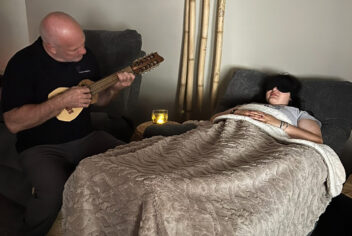Nobody starts a housing nonprofit because they want to evict people. You don’t want to behave like an intolerant landlord, but what do you do when a resident refuses to follow the rules and leaves you no other choice than to be the bad guy?
When your nonprofit has a mission to house people and help them along their recovery journey, you want to do everything in your power to help set them up for success — but sadly, some people simply don’t hold up their end of the deal, and you’ve just got to wish them the best of luck, part ways, and free up a space to give someone else a chance to succeed.
Eviction can be an extremely sensitive issue. Mental illnesses can be a factor, feelings may be hurt, and past traumas may be triggered. You are probably the one thing standing between this person and homelessness. Any of these factors can make a person unpredictable. So, when an eviction is necessary, you can’t afford to not have a plan in place.
A lawsuit alleging wrongful eviction can be a big problem for a nonprofit. That’s why it’s critically important that you understand and comply with all applicable state and federal laws related to housing and eviction.
Let’s explore a typical scenario involving a wrongful eviction claim and discuss some steps and practices your nonprofit might consider adopting to help protect yourself in a similar situation.
The Nonprofit:
A nonprofit operated a transitional housing program serving clients recovering from alcohol or substance abuse. To live in the nonprofit’s housing, the clients were required to pay subsidized monthly rent and actively participate in the recovery programs.
The Incident:
A resident living in the nonprofit’s housing stopped paying rent for several months and stopped participating in the required recovery programs. Staff members attempted to work with the resident to help them get back on track, but these efforts were unsuccessful.
Because the resident was consistently failing to meet the requirements for continuing in the program, the decision was made to evict the client after the nonprofit’s leadership consulted with their legal counsel and reviewed their procedures and records.
The Legal Action:
The client, acting as their own attorney, then filed suit in both federal and state courts, alleging wrongful eviction and demanding a large monetary settlement for emotional distress.
The Coverage:
As soon as the nonprofit was notified about the lawsuits, they alerted their broker, who began the process of making a claim on the organization’s insurance coverage through Nonprofits Insurance Alliance (NIA).
Because the nonprofit’s insurance included General Liability and Directors & Officers (D&O) coverages, NIA staff were able to review the claim and provide the nonprofit with a legal defense to augment their in-house attorney.
The Result:
While the lawsuit did go to trial, review of the nonprofit’s records proved that that the organization was within its rights to remove the client, and that the eviction process had been done in compliance with applicable laws.
This resulted in the jury ruling in favor of the nonprofit.
What Did the Nonprofit Do Right?
Aside from notifying their broker quickly, the nonprofit also did itself an enormous favor by enacting strong practices around recordkeeping and documentation.
Because the nonprofit made sure to document all their steps and had procedures in place to make sure they were in compliance with the law, this enabled the nonprofit’s defense counsel to present a clear timeline of events, proving that:
- The resident had failed to pay rent
- The resident hadn’t been showing up to the recovery programming
- The staff had tried to help the resident correct course
- The resident had received ample warnings
- The nonprofit had handled the eviction process in compliance with all relevant laws
With evidence to back everything up in court, it was a situation where the nonprofit had proof to counter the unsubstantiated claims that the resident alleged, which proved decisive with the jury.
How Can Your Nonprofit Avoid This?
Nobody is happy about evicting someone, but you must be ready for it — or you could risk a potentially harmful (and expensive) wrongful eviction lawsuit.
When you must evict someone, protecting your nonprofit against a wrongful eviction lawsuit requires you to do two things:
1. Follow all state and federal laws around housing and eviction.
Staying compliant with the law is one of the most fundamental things you can do to protect your mission.
Federal, state, and local regulations around housing and evictions are clear about what is and is not allowed, what your responsibilities are, and to which rights a tenant is entitled. So, when you run a nonprofit that owns or operates residential property, you want to be sure you’ve designed your nonprofit’s everyday practices and procedures around those laws.
This can be done with your nonprofit’s attorney or by consulting with a legal expert outside the organization. They can also help you make sure that anyone in a supervisory or leadership role is trained to know and understand what their responsibilities are in relation to housing and eviction law.
Finally, laws change all the time, so you want to be sure that you update and adapt your policies and procedures as needed to stay compliant with the law and provide your team with regular refresher training sessions to keep their knowledge of their duties and responsibilities up to date as well.
2. Prove that you followed all state and federal laws around housing and eviction.
When someone accuses your nonprofit of wrongful eviction, you never want to go to court with only your word against theirs to defend yourself. If you do, don’t expect to get any sympathy from the jury.
That’s why, for a nonprofit, there is no such thing as too much documentation.
Document everything — your processes, procedures, times, dates, decisions, attendance, every client check-in, every warning you issued, every eviction notice, and more.
Keeping good records not only helps your team stay more organized, but if your nonprofit ever needs to defend itself in court, your records can serve as proof that:
- You operated responsibly and in good faith
- Your policies and procedures complied with the law
- Rules, policies, and procedures were consistently and equitably applied
- Everyone understood their responsibilities and duties
- Staff acted and responded appropriately
Strong recordkeeping practices can provide you with a mountain of evidence to present in court, which can help put you in a much stronger position to defend your mission and your good name.
Conclusion
For a housing nonprofit, especially one that works with mental health, addiction, or other vulnerable groups, your team does its best to give clients every opportunity to succeed — but sometimes it just plain does not work out, and someone will need to be removed from your nonprofit’s housing.
Again, no one is happy about this outcome, but you can’t afford to be unprepared.
With everyday procedures and practices informed by a strong knowledge and understanding of the laws around housing and eviction, coupled with strong recordkeeping practices, your nonprofit can be better prepared to navigate this unpleasant situation — and be ready to defend itself if someone accuses you of wrongful eviction.





